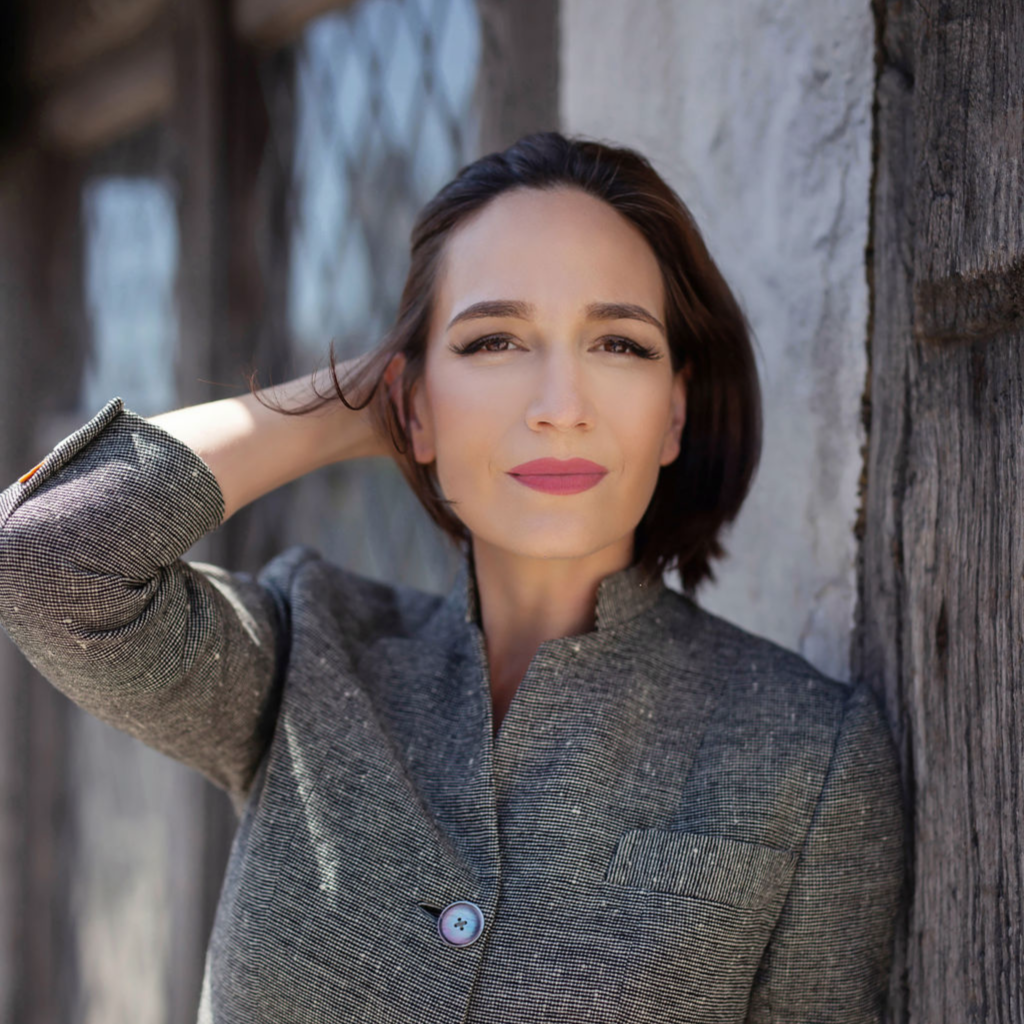We were very lucky to score an exclusive interview with mezzo-soprano Kate Lindsey where we talked about her newest release Samsara – R. Schumann & Fauré. Thank you Kate for your time and thoughtful words, and most of all thank you for your beautiful vocal performance.
-
 Samsara – R. Schumann & Fauré€18,99 – €30,99
Samsara – R. Schumann & Fauré€18,99 – €30,99
What is Samsara?
Samsara is a term used within Buddhism and Hinduism to describe the repeated cycles of birth, death and rebirth we experience in our lives. In Buddhism, in particular, this can also be related to a level of suffering. The suffering emerges from our attachment to and resistance against this inevitable transitory nature of life, and it can create immense suffering until we surrender to it with acceptance. But there is also a karmic sense to the term in the way that we face the inevitability of these constant cycles of birth and death throughout our lives. I’ve grown to think of it as being our “contract of existence” for living life on earth – all things begin and all things will end – and how we respond to these cycles is the constant challenge of being human.
How did the concept of samsara guide you in your choice of this repertoire and your interpretation/performance?
I’ve often come across pieces of music in which I’ve had the thought, “I want to explore this song/text/cycle much more deeply one day”, and I sort of put it onto that wish list for the moment when it emerges as an answer to a life thought that I’ve been pondering.
A few years ago, I found myself rather consumed with the idea of cycles – everything has a start and an end, and yet we can often live our lives really unconscious of it happening all around us. Yet, we feel the pain of it, we feel the highs and lows from those changes without having the ability to see the pain, sit with it, and see the truth that lies behind it — that we’re all in the same boat. We are all living our lives in these transitory cycles and, for me, being able to see it helped me to find more compassion and understanding for the suffering that can come from experiencing it.
So… I was looking for the word somewhere that could describe this idea – the constant cycles of life- and to be honest, Samsara was the only word out there that I could find that fully embraced this idea. I rather marvelled at that. Something that is so obvious to our existence has rarely been named in one word.
All of the sudden when I found the name for this, I knew the two big cycles I wanted to explore. Because both Frauenliebe und Leben and La Chanson d’Ève are completely built around this idea. For Frauenliebe und Leben it’s all about falling in love, making a life and losing the one you love. For La Chanson d’Ève it’s about the birth of the earthly world, the communion with all natural things, the connection to God, and eventually the realization of one’s solitude and isolation within the earthly world.
The theme and cycles came together very organically once I understood the nature of the life question I was pondering.


Do you see a relationship between these songs of Fauré and Schumann, and if so, what is that relation?
From a vocal standpoint, I really approached each composer’s songs very differently. They both have different ways of forming the foundation under which the voice emerges. With Schumann, the vocal production is quite straightforward and more classical, in a sense. The piano’s function is to accompany the voice. With Fauré, I feel that the voice becomes a painter of the text within the music, fading in and out of the phrases within the overall texture. It’s more instrumental in its function.
Your musical partner on this album says of the La Chanson d’Ève that “There is something very special in La Chanson d’Ève, a music out of time, out of known harmonic languages, a music from before Music.” Do you agree with this and could you elaborate on these special characteristics of La Chanson d’Ève?
I absolutely agree with Eric on this statement. The actual idea of La Chanson d’Ève is that she is experiencing the world forming before her eyes. And the way Fauré sets this is completely within the idea of slowly discovering the simplicities and subtleties of this new existence. It’s for this reason that his cycle isn’t like many of Fauré’s other songs that I’ve known. The harmonies take interesting and unexpected turns, and his music paints the picture of the scene happening within and underneath the text.
How did you choose the other songs that are included, outside of the two cycles?
We wanted to add several songs from Schumann and Fauré that were a little bit more known to listeners. This was especially the case for Fauré since La Chanson d’Ève is a lesser known and performed cycle of his. For me, in selecting further songs, I wanted the text to remain loyal to our theme, so I worked from that angle to choose those extra songs with Eric.
-
 Samsara – R. Schumann & Fauré€18,99 – €30,99
Samsara – R. Schumann & Fauré€18,99 – €30,99
